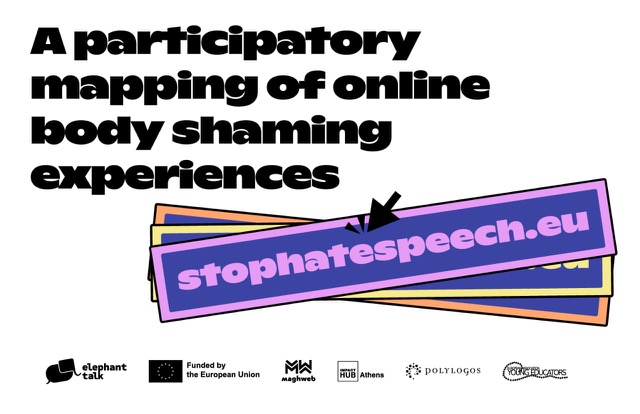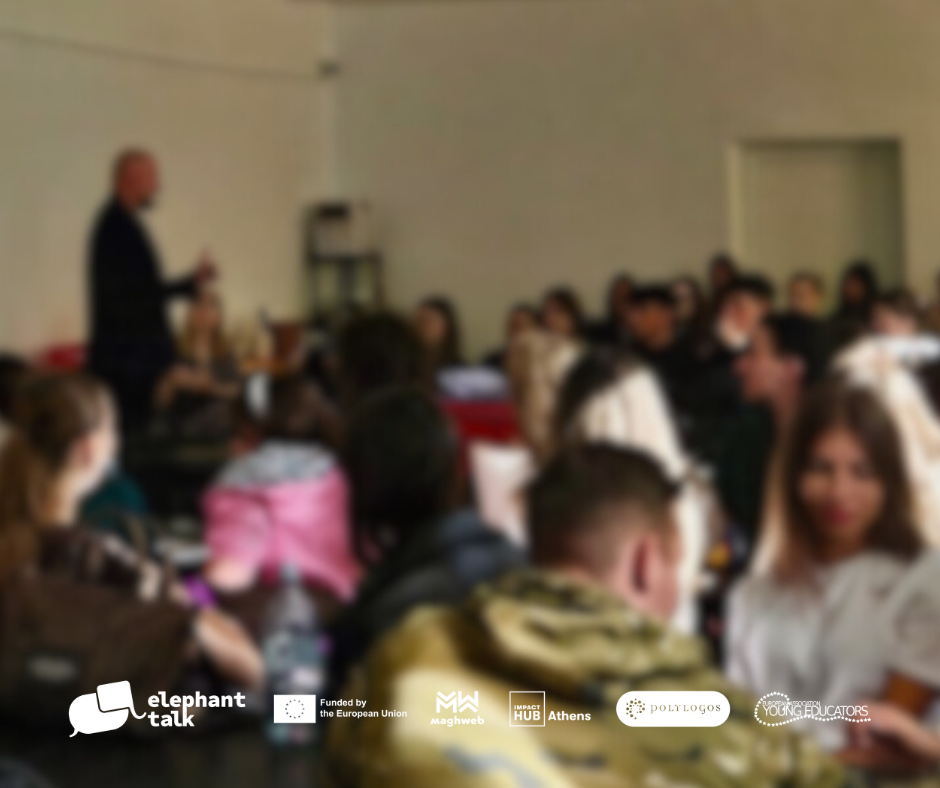On Wednesday, 24 September 2025, the Polylogos team hosted a local dialogue event at Liceul Teoretic Nicolae Bălcescu in the heart of Cluj-Napoca as part of the Elephant Talk project. This session brought together over 60 high school students, alongside teachers, youth workers, and school administrators, for an engaging and reflective conversation about online gender-based body shaming — one of the most prevalent and under-discussed forms of hate speech young people face today.
Presenting the data: What Romanian youth told us
The event opened with a presentation of the key findings from the national data collection process carried out earlier this year. The data reflects the voices of young people across Romania aged 15–30, with a particular concentration in the 15–18 age group.
Some of the standout statistics include:
- 56% of respondents reported having witnessed body shaming online.
- 24% have experienced it directly
- “Comparisons of physical appearances to others” was reported as the most common form of body shaming.
- 49% admitted to having engaged in at least one form of body shaming behaviour.
- Half of the respondents think that “If you expose your body on social media, you should accept all kinds of comments”,
- And yet, 70% of respondents believe that something should be done to address the issue.
These numbers sparked a lively discussion in the room — from surprise and discomfort to recognition and motivation to act.
Check out http://www.stophatespeech.eu/ to see the full results of the data collection.

From Data to Dialogue
Following the usual Polylogos approach, rather than being a one-way presentation, the event was designed as a space for co-reflection. After the data presentation, students were invited into a structured dialogue process, where they could share their own experiences, impressions, and questions.
Key discussion themes included:
- Should body shaming online be accepted as “normal”?
- Why do so many young people stay silent when they witness it?
- How can we respond — as individuals, as classmates, and as a school community?
- What does it take to shift from being passive bystanders to active allies?
The responses revealed that many participants were reflecting critically one this topic for the first time, and re-assessing previously held assumptions about what is “normal” and “acceptable” behaviour online. By the end of the discussion, the group expressed a strong appetite for tools, support, and educational spaces where these issues can be openly addressed.
A space for honest conversations
This event reminded us of the importance of bringing the data back to the people it represents. By returning to the school environment — where so many experiences of online harm begin or are processed — the discussion became personal, real, and rooted in lived experience.
We were particularly moved by how openly students shared their thoughts and how eager they were to understand both the impact of body shaming and their role in changing online culture for the better.
What’s Next?
This local dialogue in Cluj is part of a broader effort across the Elephant Talk partner countries (Romania, Italy, Portugal, and Greece) to equip communities of young people with the data, language, and confidence they need to engage in critical conversations about online gender-based violence.
The insights from these national dialogues will feed into the final youth-led policy dialogue event in the European Parliament, taking place on 14 October 2025 in Brussels, where young delegates will present their findings and recommendations, and engage in meaningful exchange with Members of the European Parliament.


